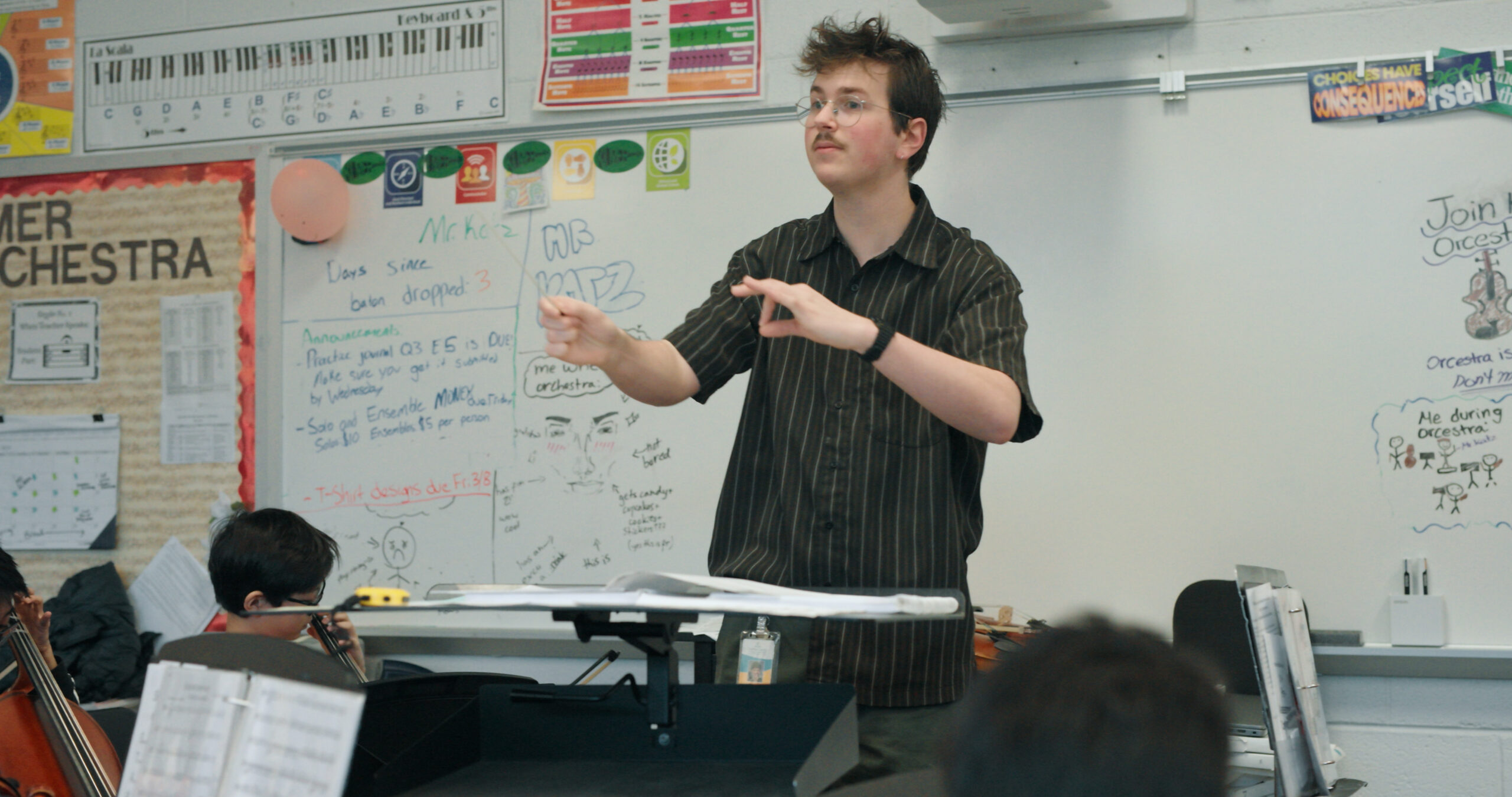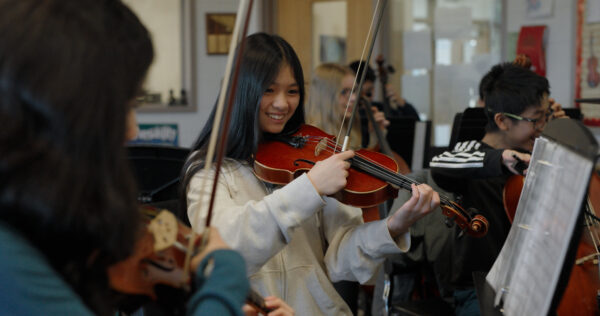/ News Posts / Classroom Management to Curb the Disruptions
It’s Not Your Fault
Classroom Management to Curb the Disruptions
By NAfME Member Angela Ammerman, PhD
Has anyone else noticed this epidemic of shrinking attention spans of our student-musicians? Nearly every teacher I meet with has encountered an increase in chatter, disruptive behavior, and a frustrating gap between those who want to be in the ensemble, and those few who don’t. What is perhaps most challenging, is that while we LOVE to talk to our students normally, the increase in disruptive behavior has made it much harder to manage a classroom, let alone to build the relationships we are hoping to foster.
And before you read any further, please know that this issue is not your fault. You did not cause the problems you are facing in your classroom today, nor did you encourage the disruptions you are experiencing. The unfortunate reality, however, is that even though these issues are not your fault, they are, well… your problem. You are the one who has to deal with them, because the more out of hand these issues get, the more they tend to grow. Before they can grow any more, let us equip you with some of the top Rehearsal Management strategies out there today, to not only curb the disruptions, but to maximize efficiency and success in your program.
In my work with musicians and music educators across the country and beyond, I have found these 14 issues and strategies to be the most impactful not only for our disruptive students, but for every musician in the program. Just remember, not every strategy will work every single time for every student. Managing a rehearsal is an art form just like teaching. Each and every ensemble will need a slightly different approach to reach peak productivity and impact.
IF ➡️THENS:
| If: | Then: |
| They are talking over you… | Get REALLY quiet and start to walk around. |
| They talk every time you stop playing… |
Speak your instructions in rhythm while still conducting. Limit your speaking time to 1 minute MAX. *BONUS: model what you want instead of telling them. |
| They are getting restless… | Shift gears and get them standing and playing (yes, even cellists…) for 2 minutes. Then, let them sit back down. |
| They are noodling on their instruments… |
Shift gears to their favorite part, then return to what you were doing. Play a game where you go back and forth between their absolute favorite section and the piece you are actually working on. *BONUS: Speak in rhythm while they are swapping between pieces to keep the momentum going. |
| They aren’t holding their instruments properly… |
Demonstrate what NOT to do, then demonstrate what to do. *BONUS: At the beginning of the next class, stand at the door while holding that instrument the wrong way to prime their mind for beautiful posture. Have everyone fix 1 thing about your posture as they walk in the door. |
| They don’t all come in on time… | Leave them behind. They’ll get the hang of it soon. Don’t play for more than 8 measures before you return to the same section and bring them in again. |
| One kid is constantly talking… | Resist calling them out. Instead, walk around the room while you continue teaching and stand right next to them for a solid minute. If it continues, switch their seat or give them some kind of a job (whisper this, don’t bring it to the attention of the whole class). |
| They are wiggly… | Add more movement! Get them out of their chairs and move around! |
| They’re chatty… |
Give them 2 minutes to chat: Give them a hilarious topic FTW! * BONUS: Weave that topic back into your lesson later by creating ridiculous lyrics to a tricky passage on the same topic. |
| They interrupt every time you stop playing… | Stop Speaking Normally, and do this instead: Speak Instructions IN RHYTHM. |
| The kids in the back are constantly off-task… | Get off the podium and walk around WHILE giving instruction and/or conducting/rehearsing. Comment specifically on something the kids in the back are doing well. |
| You can’t get their attention… | Play pop music from speakers, yes, mid-rehearsal. Increase the volume until you get their attention, then lift your arm as you decrease the volume. |
| None of this is working…
|
Stop Talking So Much. Yes, you. Try a silent rehearsal for a full day. Limit your own talking to 1 minute at a time. |
Teaching music can be the most rewarding job in the world, and yet, when disruptions rule the rehearsal, it can be so very demoralizing for everyone in the room. You are not alone in your frustration with the increase in disruptions and poor behavior, but you are now equipped. Print this article out, tape it to the podium, add to it, and cross items off. As you find what works best for your musicians, keep doing that. Thank you for the incredible work that you do for your musicians and for our future! Happy Teaching, Friend!
About the author:
 Angela Ammerman, referred to by the Washington Post as the “music teacher prodigy,” is the author of the Music Teacher’s Guide Series and hostess of the viral Instagram page: @musicteachersguide . Known for her positive energy and contagious passion for music education, Dr. Ammerman is an Associate Teaching Professor at The University of Tennessee, Knoxville, mom to an amazing kid, and wife to the other Dr. Ammerman. She is in awe of the dedication and brilliance of music educators across the country and is honored to speak with them.
Angela Ammerman, referred to by the Washington Post as the “music teacher prodigy,” is the author of the Music Teacher’s Guide Series and hostess of the viral Instagram page: @musicteachersguide . Known for her positive energy and contagious passion for music education, Dr. Ammerman is an Associate Teaching Professor at The University of Tennessee, Knoxville, mom to an amazing kid, and wife to the other Dr. Ammerman. She is in awe of the dedication and brilliance of music educators across the country and is honored to speak with them.
Interested in reprinting this article? Please review the reprint guidelines.
The National Association for Music Education (NAfME) provides a number of forums for the sharing of information and opinion, including blogs and postings on our website, articles and columns in our magazines and journals, and postings to our Amplify member portal. Unless specifically noted, the views expressed in these media do not necessarily represent the policy or views of the Association, its officers, or its employees.
Published Date
July 2, 2025
Category
- Classroom Management
Copyright
July 2, 2025. © National Association for Music Education (NAfME.org)





